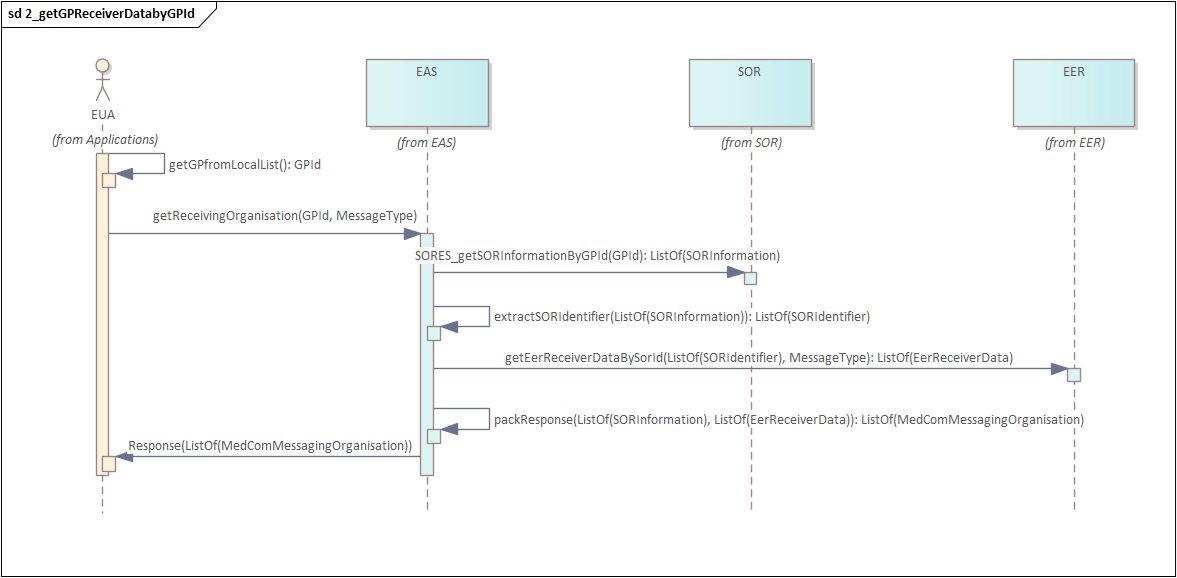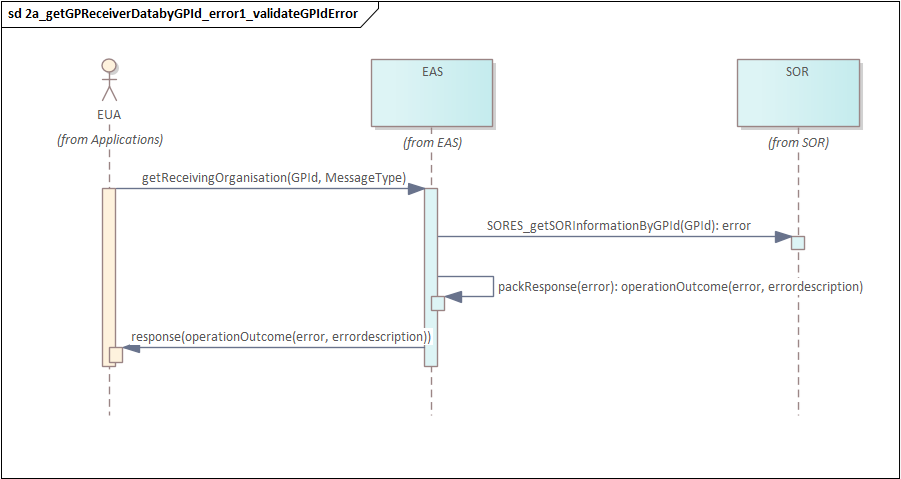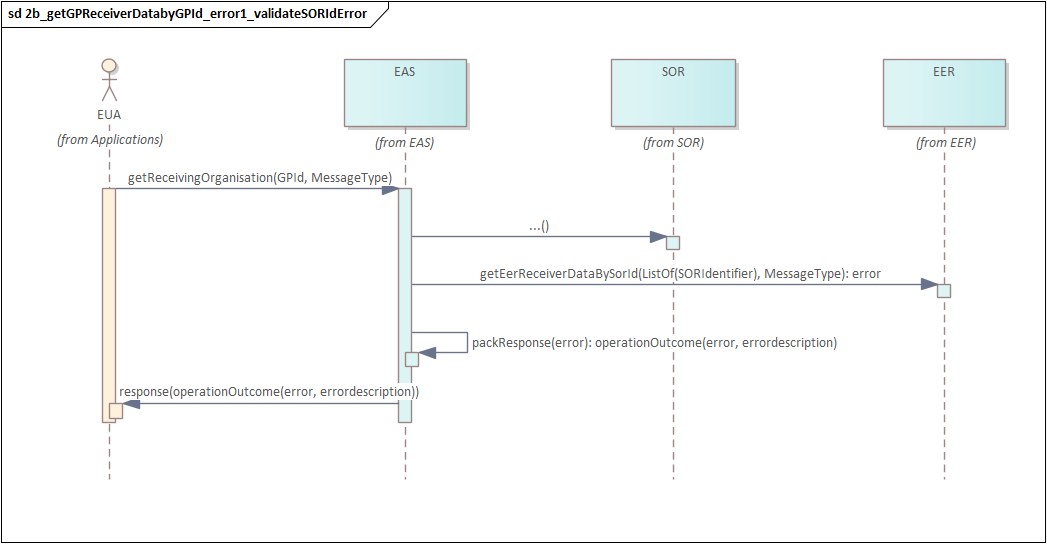EHMI Addressing Service (EAS)
2.0.0 - release
EHMI Addressing Service (EAS)
2.0.0 - release
EHMI Addressing Service (EAS), published by MedCom. This guide is not an authorized publication; it is the continuous build for version 2.0.0 built by the FHIR (HL7® FHIR® Standard) CI Build. This version is based on the current content of https://github.com/medcomdk/dk-ehmi-eas/ and changes regularly. See the Directory of published versions
This use case concerns the search for the necessary message address metadata information (like the GLN number) of a general practitioner based on the identification of the general practitioner. This is relevant, for example, when the general practitioner of a patient in the National Danish health insurance group 1 is already known. The sequence diagram for this case is as follows:

Once EAS has received the request, the organization id (and other relevant organization information) corresponding to the id of the general practitioner is obtained from the authoritative health organization register (“SOR”). With this and the type of message to be sent, the EHMI Endpoint Register (EER) is called to obtain the GLN number and other relevant information, and finally the response is packed and sent back to the caller of EAS. The message type is, again, needed in the initiating call to EAS, such that EAS can return the correct response for the given message type – it could for example be that the system of the general practitioner does not support receiving the particular type of message.
This use case is conforming to this OperationDefinition:
**Be aware:** The exact name of this operation may differentiate, when it comes to the real world implementation,
but the intention is to implement a service that given the input parameters profile will produce the output parameters Profile.
Generated Narrative: OperationDefinition eas.SikrGrp1-getReceivingOrganizationByGPId
URL: [base]/$getSikrGrp1_getReceivingOrganizationByGPId/EasSorOrganization?identifer=[GP-identifer]&MessageType=[MessageType]
Input parameters Profile:
http://medcomehmi.dk/ig/eas/StructureDefinition/EasSorOrganization
Output parameters Profile:
http://medcomehmi.dk/ig/eas/StructureDefinition/EasMessagingOrganization
Should an error occur when obtaining the organization id (and other relevant organization information), from the id of the patient’s general practitioner, an error response stating that is packed and returned to the caller of EAS as illustrated in the following diagram:

Correspondingly, should an error occur when calling EER to obtain the GLN number and other relevant information, an error response stating this is packed and returned to the caller of EAS as illustrated by:
